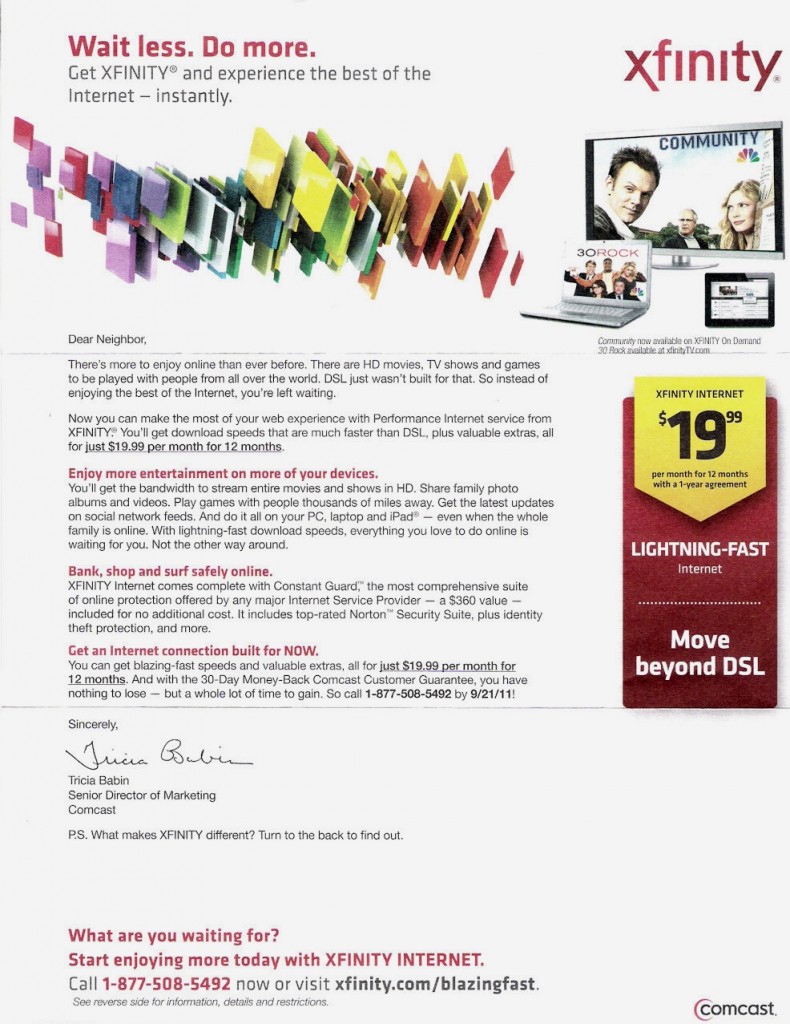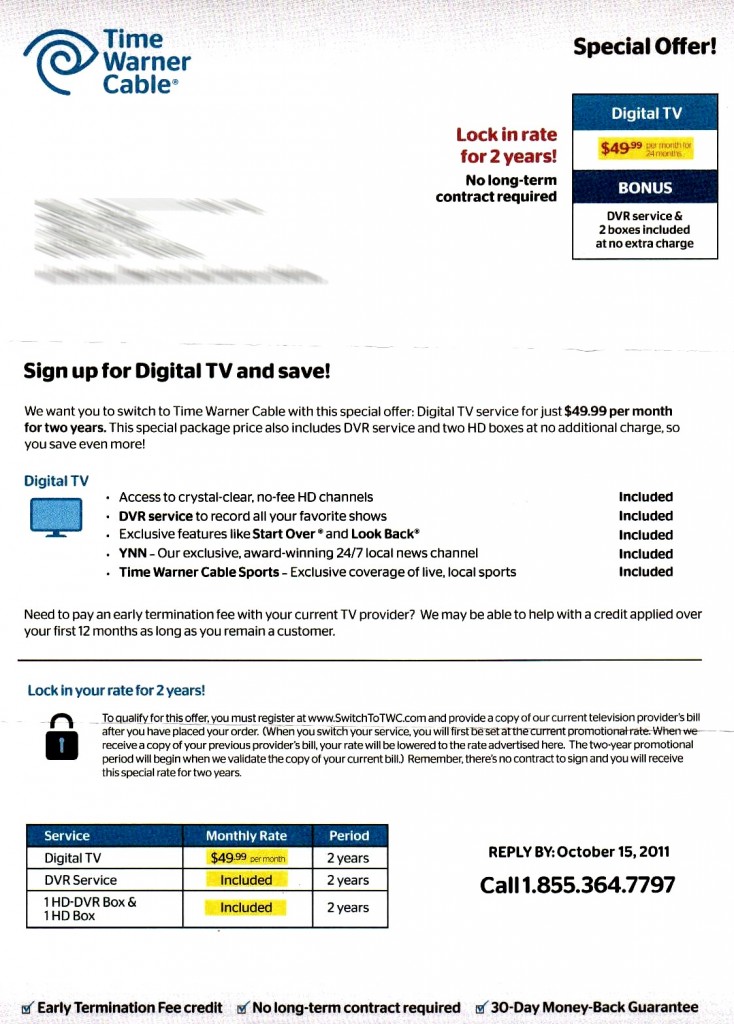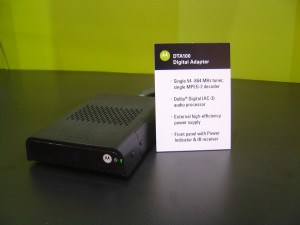 Time Warner Cable customers in Maine are the first in the country to deal with Time Warner Cable’s decision to abandon analog cable television to make room for more digital channels, faster Internet speeds, and enhanced phone service.
Time Warner Cable customers in Maine are the first in the country to deal with Time Warner Cable’s decision to abandon analog cable television to make room for more digital channels, faster Internet speeds, and enhanced phone service.
Nearly 90,000 subscribers in 105 Time Warner Cable-franchised communities are receiving letters advising them they better clear off space on top of the television set if they don’t already have a cable box or a CableCARD. They’ll need the space to accommodate a new set top digital adapter box that will let analog television sets receive the new digital signals. In return, Time Warner Cable will be able to cram 10-15 digital channels into a space formerly occupied by just a single analog channel.
Time Warner Cable will provide a few of the devices for free until 2014, after which the company will begin billing customers $0.99 a month for each digital adapter still active on their account.
Customers in Lewiston, Augusta, Rumford, and Mexico are registering to receive the boxes on a special website Time Warner Cable has launched to handle the transition. Those customers will see almost all analog cable signals cease on Wednesday, Oct. 19. The only exception is Time Warner Cable’s “Broadcast Basic” channels, which include local over the air stations and public, educational and government access channels. In Maine, that includes channels 2-22.
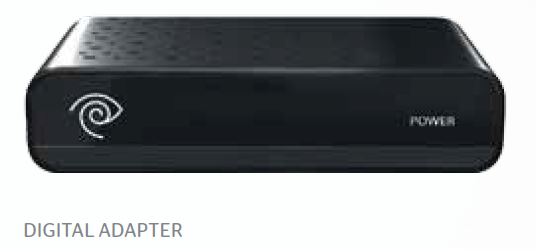 Time Warner Cable says customers with QAM-tuner-equipped televisions won’t need the digital adapters, but some Maine residents question that, noting Time Warner traditionally encrypts most of its QAM channels. There is a strong suspicion those customers will also need digital adapters or a set top box — a ludicrous situation for some.
Time Warner Cable says customers with QAM-tuner-equipped televisions won’t need the digital adapters, but some Maine residents question that, noting Time Warner traditionally encrypts most of its QAM channels. There is a strong suspicion those customers will also need digital adapters or a set top box — a ludicrous situation for some.
“I own a set with a QAM tuner built-in, and it looks like I either pay Time Warner Cable for a digital set top box or watch signals downconverted into lower quality analog with a digital adapter,” writes Stop the Cap! reader Lou in Augusta. “Either way, I’ll be paying Time Warner Cable more either immediately, or in two years.”
Lou says the complexities of channel mapping QAM signals guarantees most subscribers will pay for a box.
“It’s cumbersome to scan for open QAM channels, the channel numbers are all messed up, and sometimes the numbers change without warning,” Lou says.
Lou opted for two digital adapters, one for an older bedroom television set and the other for his son’s bedroom. He completed the installation on his own in about 30 minutes, noting Time Warner Cable will charge $17.99 to roll a truck to handle installation themselves. The biggest wait came when it was time to authorize the boxes.
“They left me on hold 20 minutes and the woman apparently was not well-trained because she kept asking for help from a supervisor,” Lou shares. “After getting the boxes activated, they worked about as well as expected, and at least now we can watch digital cable channels on analog televisions in the house without the more expensive set top box.”
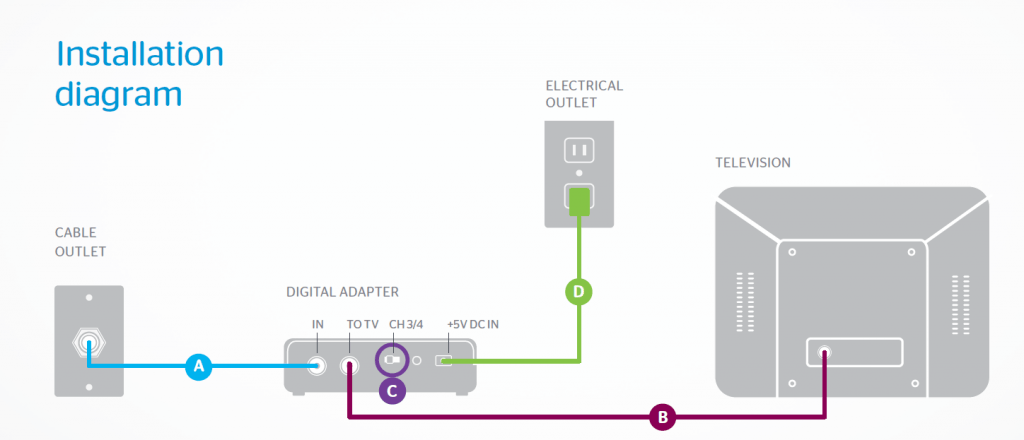
Lou doesn’t mind the fact Time Warner is dumping analog cable, he just minds how they are doing it.
“There is no reason we should have to pay the cable company more just so they can consolidate channel space for their own benefit,” Lou says. “Digital adapters should be free, forever, and QAM channels should be opened up so those of us with tuner-equipped televisions don’t have to get an unnecessary box or adapter just to watch digital channels.”
Time Warner Cable started their nationwide transition as far to the east as they possibly could. But gradually, every Time Warner Customer will experience the digital transition for themselves. For the cable company, the transition in Maine is also an experiment to learn what kind of reaction the company gets from its subscribers, says the Sun Journal:
Time Warner is unsure how the conversion will be accepted by the public. This region — from Camden to Waterville and Carrabassett Valley to Poland — is the national company’s first to make the switch. Other markets, including those in the rest of Maine, will follow, said Andrew Russell, spokesman for Time Warner New England.
Meanwhile, no one knows for sure how many boxes will be distributed or whether people will accept the fees when they begin in 2014.
From the cable company’s perspective, the fee is nominal. Similar conversion boxes, which only convert digital signals and don’t unscramble them as Time Warner’s do, cost $40 to $60 at local technology stores.


 Subscribe
Subscribe
